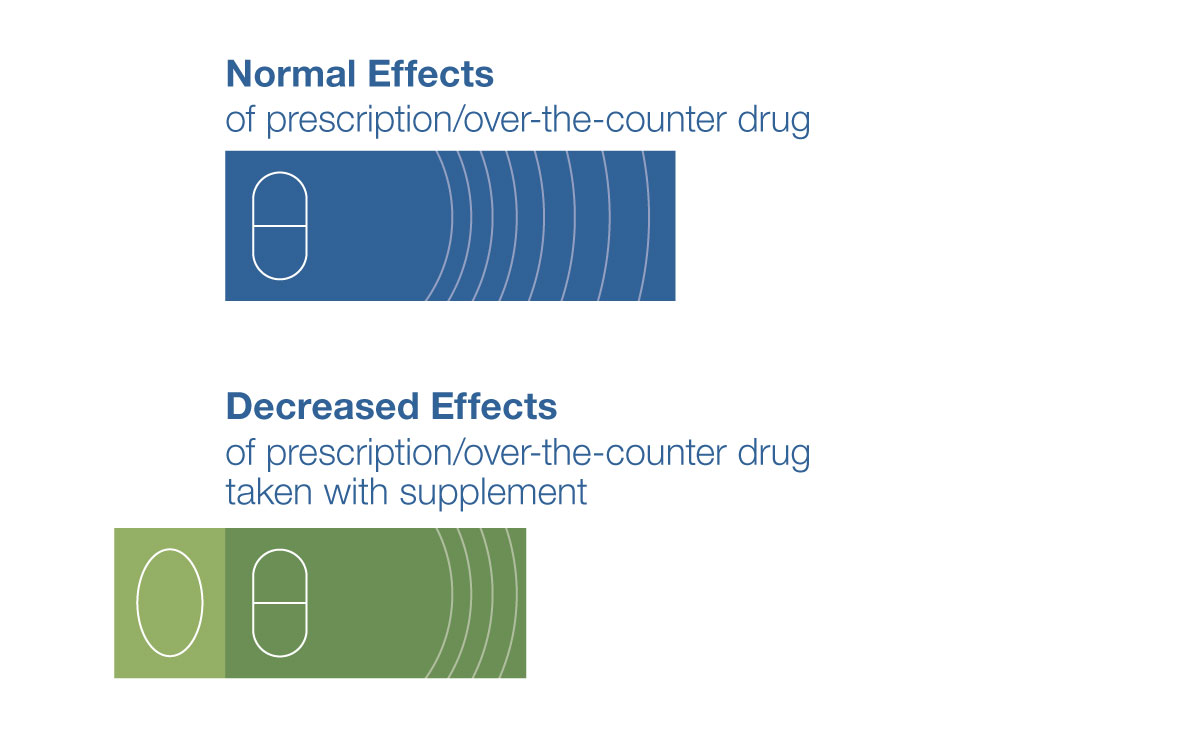Know the Science: How Medications and Supplements Can Interact

Some Supplements May Decrease the Effects of Medications
Sometimes, taking a medication and supplement together may decrease the medication’s effects. This means that you aren’t getting the full benefit from the medication that your health care provider wants you to have.
The popular herbal supplement St. John’s wort is known to decrease the effects of drugs. It does this by speeding up the processes in your body that change drugs into inactive substances.
Some common medications that are affected by St. John’s wort include:
- Antidepressants
- Birth control pills
- Cyclosporine, which prevents the body from rejecting transplanted organs
- Some heart medications, including digoxin and ivabradine
- Some HIV medications, including indinavir and nevirapine
- Some cancer medications, including irinotecan and imatinib
- Warfarin, an anticoagulant (blood thinner)
- Certain statins, including simvastatin
Recent research found that levels of metformin (the most commonly prescribed medication for people with type 2 diabetes) decreased about 25 percent in healthy adults who were given goldenseal extract plus metformin. This drop was enough to potentially hinder glucose control in people with type 2 diabetes taking metformin.
In addition, green tea at high doses has been shown to reduce blood levels and therefore the effectiveness of the drug nadolol, a beta-blocker used for high blood pressure and heart problems. It may also interact with other medicines.
